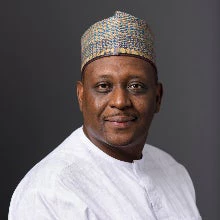When COVID-19 emerged as a global threat, the World Bank Group responded with the largest and fastest crisis response in its history. Emergency operations have now reached more than 100 countries, home to over 70 percent of the world’s population.
These operations are financing health and social programs, with a special focus on the poorest and most vulnerable people. Seven-in-ten of these projects are in the world’s poorest countries supported by International Development Association (IDA), the World Bank’s fund providing zero- or low-interest loans and grants.
The projects are part of the World Bank Group’s broader pledge to make available up to $160 billion in grants and financing over 15 months to help developing countries mitigate the health, social, and economic impacts of COVID-19. Our emergency health operations aim to boost countries’ preparedness and ability to respond to the pandemic, and protect the people most exposed to its damaging effects.
The Bank’s partnership with the Global Financing Facility for Women, Children and Adolescents (GFF) works to ensure continued access to ante-natal and post-natal care, safe childbirths, child vaccinations and other lifesaving health services, and to stave off the secondary health impacts of the pandemic that threaten to reverse years of progress in maternal and child mortality in low- and lower-middle-income countries.
Our goal is not only to save lives, but to help countries build stronger, more resilient health systems to be better prepared for future disease outbreaks and ensure no-one is left behind. In Pakistan, a $200 million, multi-sectoral project is securing urgently needed medical equipment and supplies while also providing a safety net in the form of cash transfers and food rations for those hardest hit.
“Our goal is not only to save lives, but to help countries build stronger, more resilient health systems to be better prepared for future disease outbreaks and ensure no-one is left behind.”
Georgia is using $80 million financing from the Bank to deliver income support to poor and vulnerable households as well as to purchase urgently-needed diagnostic supplies, ambulances, and medical equipment. And in the Philippines, a country of 107 million among the worst affected by COVID-19 in Southeast Asia, the World Bank Group financing of $100 million will be used to personal protective equipment, essential medicines and test kits, and expand the country’s laboratory capacity.
Close to one-third of the COVID-19-related World Bank financing targets fragile and conflict-affected countries whose health systems have limited capacity to drive an effective response. Among those, Mali will receive $25.8 million to enhance its screening, detection, and treatment of COVID-19 cases, and funding to The Gambia will enhance COVID-19 case detection and tracing, improve treatment centers, as well as to strengthen disease surveillance and diagnostic capacity.
In every country, providing support to protect frontline workers operating in a challenging environment is vital. In Ecuador, Bank financing ensures healthcare workers can access self-care and mental health guidelines in addition to doubling the capacity of intensive care units.
Social distancing, hand washing, and other protective measures are key to reducing the infection rate and avoiding overwhelming health systems, particularly when they are fragile. Community engagement is fundamental to promote these messages, explain how the virus is transmitted, and communicate risks accurately, which is why this is a core component of all World Bank COVID-19 operations.
“As scientists race to develop vaccines and therapies against COVID-19, global cooperation is needed to avoid fragmentation and duplication of efforts.”
Experience responding to Ebola and other outbreaks of infectious diseases has shown that building trust by engaging with citizens and community leaders is critical to the success of any pandemic response , along with promoting transparency and social accountability. This approach also helps enhance the safety of healthcare workers. An example of this can be seen in Djibouti where, with Bank support, community institutions and women’s organizations will help disseminate information on proper hand washing and hygiene measures in vulnerable areas.
As scientists race to develop vaccines and therapies against COVID-19, global cooperation is needed to avoid fragmentation and duplication of efforts. The World Bank believes that fair and equitable access to vaccines is essential for all countries, including the poorest, to reduce the destruction caused by this pandemic, rebuild livelihoods, and set course toward recovery.
The World Bank supports the Coalition for Epidemic Preparedness Innovations (CEPI) and the Global Vaccine Alliance (GAVI) to encourage scientific research that could lead to the production of vaccines effective against COVID-19, and to ensure their delivery. The World Bank is also providing technical and financial assistance to governments as they build the mechanisms needed to ensure safe, efficacious vaccine delivery.
Decisive actions being taken by governments around the world, in many cases with World Bank Group assistance, are contributing to saving lives and protecting livelihoods. The World Bank remains focused on helping to translate global commitments into tangible actions at the country level. We will continue to support countries as they redouble their efforts to protect their citizens from the impacts of COVID-19 and rebuild for a brighter future.



Join the Conversation